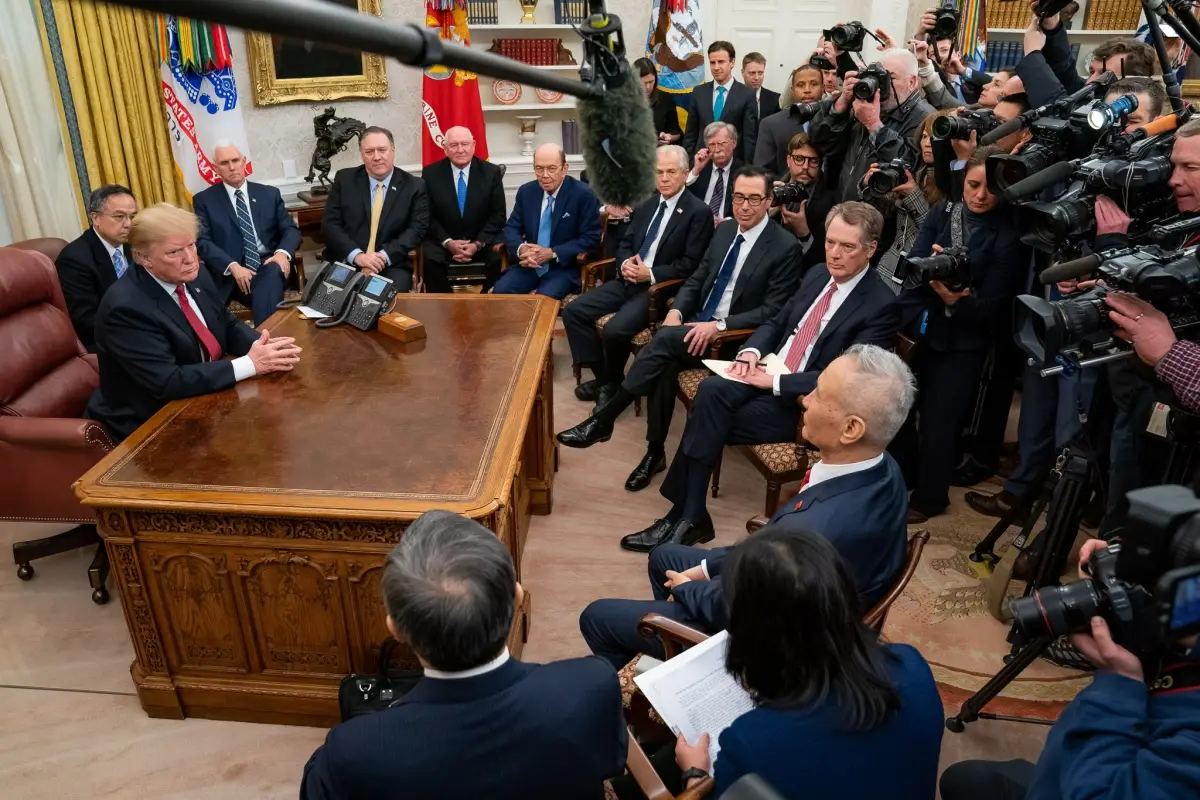
Asia Society Experts Weigh In As US-China Trade War Reaches Boiling Point
Photo: White House/Tia Dufour
NEW YORK, NY — As tensions between the world’s two largest economies continue to rise, experts at the Asia Society Policy Institute (ASPI) have warned of far-reaching consequences in the deepening U.S.-China trade war.
Following Beijing’s latest round of tariff hikes on U.S. imports—bringing the total rate to 125%—Wendy Cutler, ASPI Vice President and Managing Director of its Washington, D.C. office, emphasized that any expectations of China backing down are now firmly off the table.
“With China’s announcement of further tariff hikes against U.S. imports, it’s clear that hopes that China would blink first in this trade war are misplaced,” said Cutler. “China is in for the long haul.”
She noted that Beijing’s admission that it may be finished retaliating through tariffs alone suggests that China is now preparing to deploy a broader set of economic tools. “The steep tariffs now in place—145% for Chinese imports to the U.S. and 125% for U.S. imports to China—virtually halt all goods trade between the two largest economies in the world,” she said.
While the duration of these tariffs remains uncertain, Cutler predicted an eventual recalibration. “At some point both Washington and Beijing will recognize the need to re-engage and manage this deteriorating situation,” she added.
Daniel Russel, ASPI’s Vice President of International Security and Diplomacy, characterized Chinese President Xi Jinping’s strategy as one of patience and calculated restraint. “Xi Jinping isn’t backing down, but he’s not blowing things up either,” Russel said. “He’s betting that Trump’s tariff tantrum will collapse under the weight of the U.S. market response.”
Rather than respond tit-for-tat, Russel explained, Beijing appears to be shifting its focus to long-term strategic positioning. “By declaring it will ‘ignore’ future U.S. tariff hikes, Beijing is not trying to win the trade war—it’s trying to outlast it and to outmaneuver Trump.”
Russel pointed to China’s current diplomatic outreach—including Xi’s ongoing tour of Southeast Asia—as part of a calculated pivot. “Beijing’s goals are to buffer its economy, expand diplomatic clout, and keep pressure on U.S. allies to hedge,” he said. “Xi’s Southeast Asia tour is part of a strategy to shore up China’s economic ties in the region while Washington lashes out and alienates its partners.”
As both sides dig in, ASPI experts suggest the trade war has moved beyond mere economic posturing into a broader geopolitical contest—one that will require strategic recalibration to avoid long-term global fallout.




